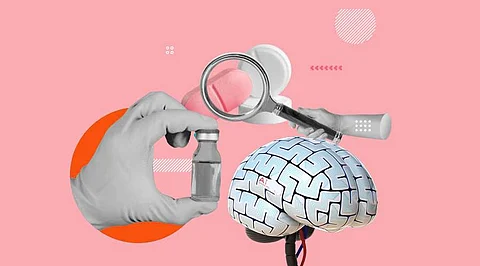

Creating new drugs is an important procedure that enables the treatment of many different health issues. These are laborious, expensive, and time-consuming operations.
From concept through testing, several challenges are encountered during the drug discovery process.
A serious threat to the world's public health just emerged as Corona Virus Disease 2019 (COVID-19). SARS-Cov-2 and its variations have a high transmission rate, causing them to spread quickly among humans. Potential medications and vaccinations must be developed swiftly to treat COVID-19 adequately. The focus of drug research has switched from conventional approaches to bioinformatics tools due to the development of artificial intelligence. Techniques for computer-aided drug creation have shown to be incredibly useful for processing enormous volumes of biological data and creating effective algorithms.
Through machine learning, artificial intelligence provides more practical solutions to challenging drug discovery and development issues. Technologies built on artificial intelligence help the pharmaceutical business find more efficient medicines. To effectively address health issues, this article covers the uses of artificial intelligence-based technologies to get around such information. This may offer further understanding of the mechanism of action, leading to the creation of vaccines and powerful alternatives for repurposed medications that can be used to treat COVID-19 and other illnesses.
Here are a few instances of ground-breaking medication discovery using AI:
AI's potential to solve problems with medicine research, production, and finding. AI is a broad tool that may be used to research further, find fresh targets, and create new disease models in addition to being useful for finding leads. Small molecules as a therapeutic approach continue to be the major topic of AI research. The data-centric innovation approach includes AI as a strategic component. To pool resources, big tech firms cooperate with start-ups and pharmaceutical firms, focusing on customized medicine, cell and gene therapy, and software for molecular prediction. Despite the difficulties and uncertainty of pandemic times, AI in the drug research sector has shown tenacity and expansion.
One of the key uses of quantum computing in the pharmaceutical and biotech industries is CADD. This requires several procedures, including target identification and validation, hit generation, lead optimization, protein engineering, and protein design. Quantum computing is projected to increase the usage of high-throughput technology by enabling quick processing of complex data sets. In addition, it is predicted that quantum computing will speed up the creation of new pharmaceuticals. Other uses for quantum computing and AI include understanding disease mechanisms, enhancing clinical trials and the creation of synthetic routes, enhancing formulation development efficiency, enhancing large-scale manufacturing processes, and developing supply chain modeling. Big data solutions will be more affordable and result in better decision-making, enhancing clinical trial effectiveness. The early applications of artificial intelligence have produced encouraging results, inspiring much enthusiasm.
Join our WhatsApp Channel to get the latest news, exclusives and videos on WhatsApp
_____________
Disclaimer: Analytics Insight does not provide financial advice or guidance. Also note that the cryptocurrencies mentioned/listed on the website could potentially be scams, i.e. designed to induce you to invest financial resources that may be lost forever and not be recoverable once investments are made. You are responsible for conducting your own research (DYOR) before making any investments. Read more here.
